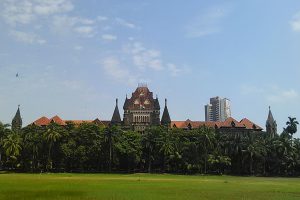Bombay High Court: The Division Bench of V.K. Jadhav and Shrikant D. Kulkarni, JJ., held that,
Mere dishonour of cheque and refusal to pay remaining balance amount involved in the transaction does not amount to abetment to commit suicide.
Factual Scenario
Dnyanoba Shinde (deceased) was the father of first informant. Deceased had agreed to purchase a plot from the applicant and had given the earnest money in 3 installments.
The said transaction came to be cancelled for want of clearance from the town planning department. Late Dnyanoba Shinde requested the applicant to repay the earnest money. Part of the amount of earnest money was paid to Late Dnyanoba Shinde. For the remaining balance amount, the applicant had issued the cheque.
Further, it was alleged that the applicant avoided making payment of balance amount and the cheque given by the appellant was dishonoured.
Due to the avoidance of making the above-stated payment, the mental condition of the father of the first informant was disturbed.
Suicide
Eventually the deceased left the house and committed suicide by hanging and on the suicide note the name of the applicant and others were mentioned making them responsible for suicide.
Applicant has approached this Court for quashing of the FIR and consequent filing of charge sheet filed against him.
Analysis
According to the provisions of Section 306 of the Penal Code, 1860 in order to bring a case of suicide, the person who is said to have abetted the commission of suicide must have played an active role by an act of instigating or by doing certain act to facilitate the commission of suicide.
“…instigation can be inferred where the accused had, by his acts or omission created such circumstances that the deceased was left with no option except to commit suicide.”
Further, it was noted that the allegation levelled against the applicant in no way suggested that there was an active role on the part of the applicant, which led to the suicidal death of the deceased.
Bench stated that the prosecution case was based upon the suicide note, wherein the name of the applicant was figured. There was a big question mark on the genuineness of the suicidal note.
During the investigation it was disclosed that one Sopan Nagorao Mandale resident of Rahul Nagar, Latur had written that note and handed over to the deceased. Thus, it was clear that the very foundation of the prosecution case was shaky.
Therefore, allowing the criminal proceedings against the applicant to continue would be an abuse of the process of the Court and the ends of justice require that the proceedings ought to be quashed.
The saving of the High Court’s inherent powers, both in civil and criminal matters, is designed to achieve a salutary public purpose which is that a court proceeding ought not to be permitted to degenerate into a weapon of harassment or persecution.
Concluding the matter, Court stated that there was no propriety to continue the criminal proceedings against the applicant and put him on trial. [Balaji v. State of Maharashtra, 2021 SCC OnLine Bom 1597, decided on 5-08-2021]
Advocates before the Court:
Mr. N.D. Kendre, Advocate for the Applicant
Ms. Preeti V. Diggikar, A.P.P. for Respondent No.1 / State Mr. S.S. Panale, Advocate for Respondent No.2

